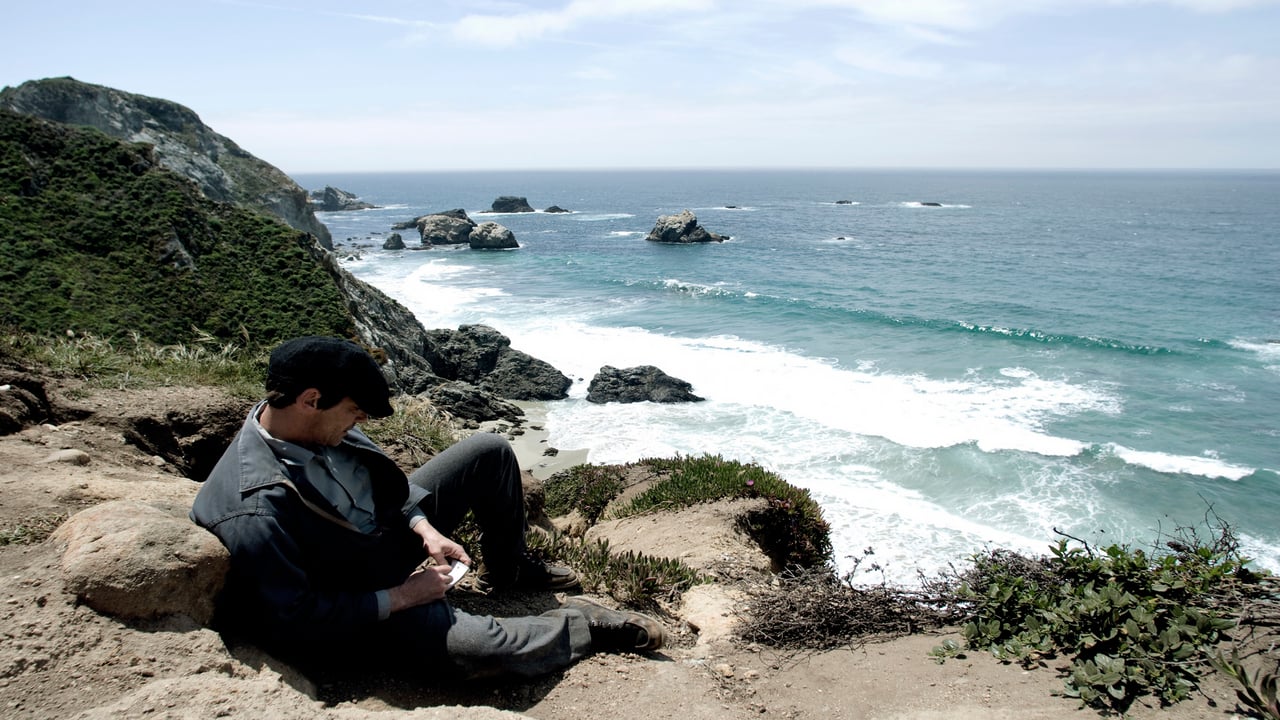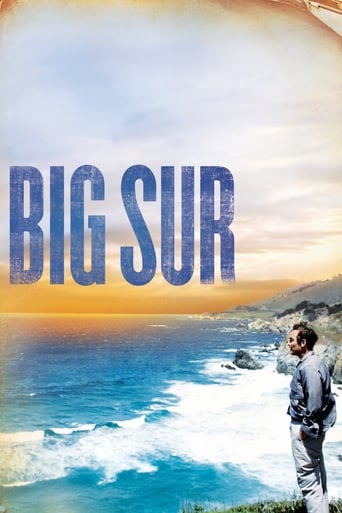

It isn't all that great, actually. Really cheesy and very predicable of how certain scenes are gonna turn play out. However, I guess that's the charm of it all, because I would consider this one of my guilty pleasures.
... View MoreYes, absolutely, there is fun to be had, as well as many, many things to go boom, all amid an atmospheric urban jungle.
... View MoreOne of the film's great tricks is that, for a time, you think it will go down a rabbit hole of unrealistic glorification.
... View MoreIt is encouraging that the film ends so strongly.Otherwise, it wouldn't have been a particularly memorable film
... View MoreThis film is a total drag. I had no idea Kerouac was such a loser. I honestly don't know what he had to complain about. Here he is, a famous writer, in bed with a gorgeous woman, surrounded by friends and the guy is miserable as hell. I have no sympathy for people like that. Plus he never stops drinking. I guess being a writer the booze is just an occupational hazard but still, I've never seen anyone drink that much! I know he died young as a result of alcoholism and that really doesn't surprise me now. Both he and Cassady had such sad endings. Perhaps there is a moral in there somewhere but I don't know what it is. If you want to read a truly inspirational writer, who is often called the father of the beats, check out Henry Miller, who is mentioned in the film once or twice, as another writer who would up in Big Sur. Now Miller knew how to live. He never let depression beat him. The man was a force of nature. Forget about Kerouac and Burroughs, these guys had serious issues. Henry Miller is yr man. Reading his material never fails to lift my spirits. As for the film, watch it for the scenery and a semi-nude Kate Bosworth, that's about all it's good for.
... View More"Big Sur" (2013), based on the 1962 book by the enigmatic Jack Kerouac, details the author's three retreats to a friend's cabin in the magnificent eponymous location a hundred miles south of San Francisco. Sometimes he's alone and sometimes he's with friends. Kerouac can't handle his fame and success as the leader of the beatniks and so descends into the darkness of alcohol addiction. While this is a well-made artsy film featuring narrations from the author himself throughout, it's done in by its subject. At least with 1991's "The Doors," which chronicled Jim Morrison's downward spiral, we got great music, entertaining concert footage and colorful characters. "Big Sur," by contrast, only has Kerouac's stream-of-consciousness verbiage (i.e. "interior monologue") and the beautiful cinematography of Big Sur. Yes, it's professionally made with a quality cast and it kept my interest for the first 45-50 minutes, but then it just drones on to the bitter end. I hate seeing people waste their talents, especially by their own foolish addictions. Of course this is the only way the story COULD end since it's based on real life. Jack was dead at 47. Despite my criticisms, "Big Sur" is worthwhile if the topic interests you and the film's obviously a must for Kerouac fans; it will leave most everyone else bored or depressed.Interestingly, it was 1957's "On the Road" that propelled Jack to beatnik stardom, but he later confessed it "was really a story about two Catholic buddies roaming the country in search of God. And we found him." Too bad his revelation didn't help him out with his increasing substance abuse. The film runs a mere 81 minutes and was shot in Big Sur and San Francisco. GRADE: C
... View MoreIt's impossible to discuss this movie without putting it in the context of "On The Road", which could not find an audience. Knowledge of who Kerouac was is limited in the TV age; and his books, all fictionalized tales, yet autobiographical in nature (and to some a serialized mythology of an artist's life) are reduced to a cult-fan base in this era. If the iconic road story that launched Kerouac into the literary firmament was rejected by the Superhero loving movie audience of today, what chance does a psychological internal monologue about an artist's descent into alcoholism have.So we are left with a simple dividing line: do you know the work of Kerouac and the milieu of "The Beats"? If you don't, then this movie will seem odd and slow-paced, overwhelmingly pointless and pretentious. If you are a fan, then we are confronted with another question: Is simply seeing the narratives underlying Kerouac's poetic stream of conscious writing brought to life worth dealing with the limitations of converting works of art that are not plot-based to film? Like "On The Road", "Big Sur" delivers a simple enough joy to the Kerouac fan. There it is: a dramatization of Kerouac's iconic writings, replete with tons of required voice-over narration of the jazz-based flowing verbiage that makes Kerouac Kerouac. But, you can't help but think, wow-it's just not possible to make a conventional movie out of a Kerouac story, you must have excessive narration, because Kerouac was entirely about the words - the rhythm, the cadence, the explosion of images and alliterations. None of this is bad, but it requires an acceptance of the source we are dealing with to accept such an extensive override of normal plot-driven movie storytelling. The movie is well directed. Polish mixes imagery well, establishes mood and atmosphere, and handles the semi-hallucinatory descent into alcoholic stupor with a pleasant restraint. The actors all do top-notch work, although some of the peripheral characters such as Lew Welch, Ferlinghetti, and Whalen seem to have no emotional connection to the main character or his problems. They are just there. Even Neal Cassady ultimately fades away at the end.Kate Bosworth enters the movie halfway through the story and become the last lifeline that Kerouac throws away. While undeveloped as a character, she does a fine job representing the last real thing left to hold onto. She fits the role well, and plays out heart-wrenching string aptly, as a character smart enough and jaded enough to cope with her fate. As a fan of Kerouac, I can say that there is so much good about this movie and it's straight forward attempt at delivering Kerouac's last important novel as a film, that I would recommend it highly to anyone that enjoyed "On the Road" as a film. If you were bored with OTR, or didn't get it, you will not enjoy this subtle intelligent movie.
... View MoreThis is a brief review of "On the Road" and "Big Sur", two films based on novels by Jack Kerouac. In the years after World War 2, the United States saw the rise of the Beat Generation, a growing group of men and women who rejected the trends, wants, values and aspirations of the post war majority. The Beats sought spiritual meaning, rejected America's docility in the face of consumer capitalism, and were branded by many as "radicals", "dissidents" and "bums". Older generations, especially those who had struggled during the Depression, were thoroughly confused by this movement. Why did they reject work? What was wrong with them? Why did they challenge the sexual, religious and political conventions of the day? Some historians disagree about the size, influence and importance of the Beat movement, but most trace its beginnings back to 1944, when Allen Ginsberg met Jack Kerouac at Columbia University. Ginsberg would be suspended from school and Kerouac would drop out. Both would befriend the infamous William Burroughs, who at the time lived in Greenwich Village. The trio would bond with other outcasts, and spent the 1940s exploring the Village, writing poetry, novels, listening to jazz, experimenting with drugs, having uninhibited sex and waxing philosophical. Most had no steady employment. Some drifted toward Buddhism. In 1957, Norman Mailer would dub the Beats "the White Negroes". In his articles he would draw parallels between African-American and Beat lifestyles, both deemed alienated, both deemed to have deviant tastes in literature, music, language and religion. Historian Douglas T. Miller would say "the Beats made the establishment afraid because they were a genuine bunch of dissenters; they were humanitarian, attractively hedonistic, very vaguely left-wing, and most of all, popular. That gave them a dangerous power". Historian Allen Matusow would describe the Beats as "the forerunners of the Hippie Movement". Unsurprisingly, the Beats came under scrutiny of the FBI, which used McCarthyist tactics to squash what they deemed a "subversive group". At a 1960 Republican Convention, J. Edgar Hoover named "beatniks" one of the three menaces to the United States, the other two being "communism" and "intellectuals", which pretty much sums up US policy; keep em' stupid and consuming. Kerouac would publish "On the Road" in 1957. It would be turned into a 2012 film by Walter Salles. Both works find a gang of young adults on a trip across America. Their unspoken mission? To find a new, more "free" mode of living which exists thoroughly outside of contemporary conventions. More importantly, they seek to find a new way of measuring happiness and success. As such, our gang reject traditional nuclear families and form a kind of polygamous brotherhood. This project fails, as sexism, egos, macho prides and the rules and expectations of wider society (marriage, house, rent, food etc) encroach. Both works end on a note of tragedy, promises shattered and relationships broken, though Kerouac never lets go of a very specific spiritual quest: a quest to create or find something better.Salles' film is terribly directed, thin, superficial and omits the strongest aspect of Kerouac's novel: the many people his heroes encounter on the road (drunks, travellers, immigrants, workers, addicts etc), all of whom help sketch an America which pushes away as many as it embraces. The result is that Salles' film reduces the Beat movement to sex, brothels, whisky, theft and drugs. Kerouac's internal yearnings go completely ignored. Elsewhere Salles attempts to mimic the book's style (free form, fluid, rhythmical), to disastrous effect. Viggo Mortensen is excellent as an eccentric Burroughs.Worse than Salles' film is Michael Polish's "Big Sur". Like a cross between a powerpoint presentation, Terrence Malick film and sepia photo, the film stars Jean-Marc Barr as Jack Kerouac, a now famous writer who escapes his adoring public by diving into alcohol, depression and isolation. More than this, upon Kerouac's body is being inscribed the death of a generation. He sees dead animals everywhere (cats, otters, rats etc), finds the sound of crashing waves to be death kneels, and is consumed by a hatred for absolutely everything, unable to find joy or pleasure in a world that has long given up on his own personal ideals. In "Big Sur", Kerouac – the voice of a generation - has long died, his body is just taking a while to catch up. While Kerouac may be a sign-post in American literature, as cinema "Big Sur" and "On the Road" are thoroughly outdated. Why? Largely because American cinema had its own Kerouac: Nicholas Ray. As comparison, see Ray's "In a Lonely Place", "On Dangerous Ground", "Knock on Any Door", "Rebel Without a Cause" and "Bigger than Life". Vincente Minnelli also traded in similar themes ("Some Came Running", "The Sandpiper"). Also of interest are 1967's "Easy Rider" and the existential road movie of the 1970s ("Vanishing Point", "Two Lane Backtop" etc), and even more recent films like "Ghost World", "Ask the Dust", "Where the Buffalo Roam" (1980), "Fear and Loathing in Las Vegas" and "The Rum Diary", all films about writers on similar existential quests. 4/10 - Worth one viewing.
... View More